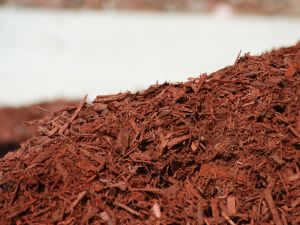Meanwhile, 13 million tonnes of organic material is going into landfill, material which could be diverted into compost production.
A study by Compost Australia, a division of the Waste Management Association of Australia (WMMA), has shown that increased use of organic compost in the intensive citrus industry saved 30% on irrigation and increased crop yields.
However, as Angus Johnston national projects manager of Compost Australia explains, compost use is a long-term solution, and one that requires both investment and a shift in farming philosophy.
So if compost yields such a healthy return, why isn’t it used more widely?
"There are number of reasons," Johnston said.
"Firstly economics. If you want to spread composted mulch into a citrus plantation at a rate of 100 cubic metres per hectare - which is an effective rate - the upfront investment is $30 per cubic metre."
Johnston told IndustrySearch.com.au that $3000 per hectare was a realistic cost to apply compost but that cost could represent 50 or even 100 per cent of the land’s value
"That upfront cost, it’s not a tractor so a finance company won’t fund it…you’re going to have to find the money yourself. For every dollar you put in you get five back, but the fundamental problem is composting is an investment in the land, and no one really recognises that.
"It takes time to build up your soil’s biological ability to provide nutrients. Most farmers know they have to build up a biologically active soil but it’s very hard, you have to wean yourself off that old system.
"What we really have to do is re-educate farmers about carbon and building a soil with a diverse biological population."
Between three to five million tonnes of organic matter is currently diverted from landfill to compost production. That compost has largely ended up in suburban home gardens – a market that composters could get top dollar for.
Johnston said the home garden market is now over-supplied and so an opportunity exits to supply the intensive agricultural sector.
"Mind you, if you composted all of that 13 million tonnes [currently un-composted landfill] and turned it into soil, you wouldn’t even have enough for the intensive horticultural market. It’s never going to be the whole solution," he said.
Compost will not replace traditional NPK (nitrogen, phosphorus, potassium) fertiliser use, according to Johnston.
"We say to fertiliser industry we’re not going to replace you, we want to work with you."
Indeed the two work hand in hand as a healthy soil delivers fertiliser to the plant more effectively than does a starved, denuded soil.
Large amounts of residual product are available for composting from industries such as sugar cane and forestry. However the biomass energy sector is competing for those inputs.
"The question is what do we need more? Biomass is never going to meet our energy needs. Or do we need more topsoil? I think everyone would have to say the right answer is the second one," Johnston said.
"We have problems with our soil getting washed away and blown away, and that’s partially because there’s not enough carbon in the soil."
Johnston sees compost as the best method to rehabilitate degraded land.
"It’s about using natural systems rather than buying in all your inputs and then exporting those off the farm at the end of the day," he said.
The report on compost use in the citrus industry can be found at www.compostforsoils.com.au


-160x160-state_article-rel-cat.png)
